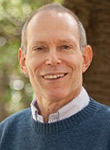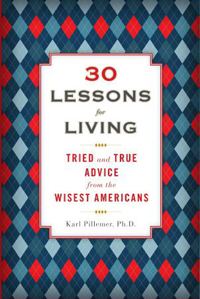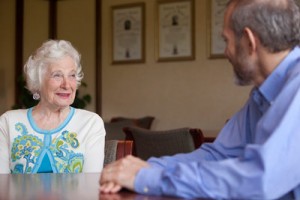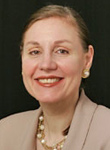By Karene Booker
Reprinted from Cornell Chronicle, February 13, 2013

Will you save the best chocolate in the box until last? Do you want the good news first or the bad? Your preferences may depend on your age, reports a Cornell study published in Psychology and Aging (Vol. 27:4).
In a series of experiments, younger adults preferred to get aversive experiences out of the way and save the most positive ones for last, confirming prior research. However, preferences for the timing of emotional experiences differed by age. Older adults would rather intersperse the good with the bad, and this may have implications for financial planning, medical choices and work life, the authors say.
"Our research is the first to systematically examine age differences in preferences for emotional sequences," said Corinna Loeckenhoff, assistant professor of human development in Cornell's College of Human Ecology, who authored the study with former students Andrew Reed, Ph.D. '11, and Skye Maresca '11.
"Much of the prior research on aging and decision-making has focused on isolated events, but we tried to approximate real-life settings where people encounter extended sequences of experiences," said Loeckenhoff.
The team conducted two studies, each with about 90 adults, spanning different ages. Participants were asked to view a series of photos with positive, negative or neutral content, and they could choose the sequence in which they would see them. As expected, younger adults showed a preference for sequences that began with the negative photos and ended with the positive ones. However, this tendency faded with age, with the oldest participants preferring "flat" sequences, where different types of photos were more evenly interspersed.
"The findings have potential implications for real-life settings," Loeckenhoff said. "The construction of advantageous sequences is critical for a variety of life domains such as financial planning, sustained performance in work settings, and the management of health conditions," Loeckenhoff added. "Such decisions are particularly relevant for older people because limited physical and cognitive resources may make it more difficult for them to recover from repeated negative experiences and poor choices."
More research is needed to understand the mechanisms that drive such effects, but Loeckenhoff and colleagues found some hints that age differences in future time horizons may play a role. Participants' preferences for specific sequences were associated with their self-reported time perspectives. Those with expansive horizons (typically seen in younger adults) were more likely to save the best for last, whereas those with limited horizons (typically seen in old age) opted for balanced sequences. To some extent, older adults may be following the adage "life is short, eat dessert first."
In future work, the authors hope to examine sequences of events that occur over longer time frames ranging from weeks to months. The research was supported in part by Cornell's Department of Human Development and the Lois and Mel Tukman Endowment.
Karene Booker is an extension support specialist in the Department of Human Development.










